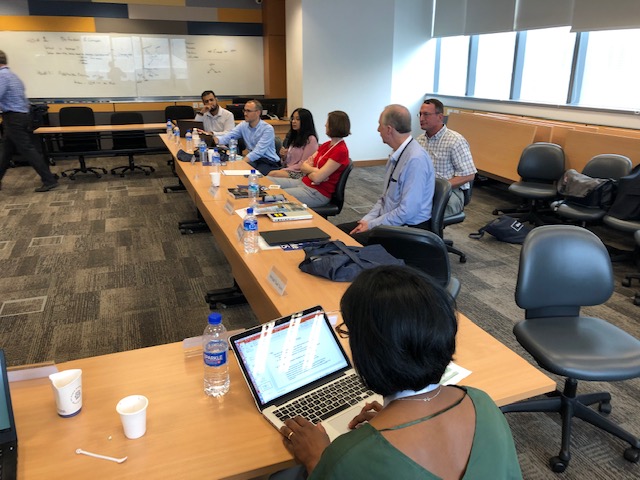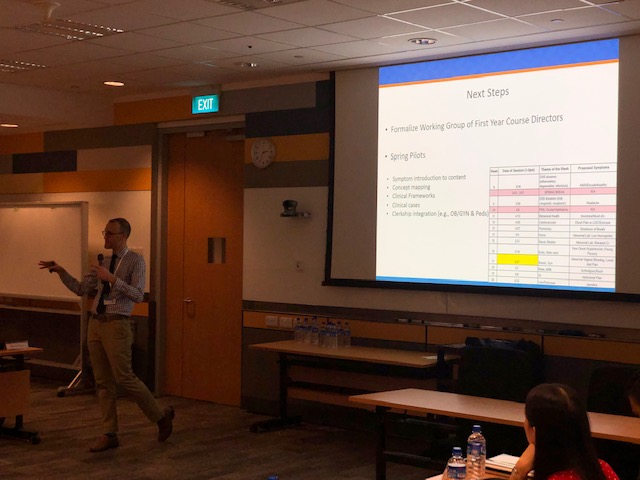This post was submitted by Joel Boggan, MD, GIM Assistant Professor of Medicine.
Last week, as one of the team captains for the Curriculum Innovation Committee, I traveled along with other members from the medical school to Duke-NUS in Singapore. Several of us within general internal medicine and the department of medicine have served on one or more of the innovation sub-committees and/or have shared insights about the current curriculum and potential opportunities for improvement, for which we are very grateful.
 Singapore this year! Durham next.
Singapore this year! Durham next.
Each year, Duke & Duke-NUS convene meetings of course directors from their first and second-year courses, alternating between Singapore and here in Durham. This winter, the first-year course directors gathered to share updates and current best practices. As many of the initial proposed changes to the Duke curriculum will begin with future first-year students, we were asked to share what our current vision entails.
Presenting upcoming curriculum change
For our presentation, Drs. Colleen Grochowski and Ed Buckley introduced the initial 'Big Ideas' from a retreat almost two years ago:
- Providing students early, meaningful clinical experiences within the first year of medical school and thereafter;
- Teaching basic science content through the lens of patient symptoms;
- And, continuously incorporating new clinical and data tools into the curriculum.
 Scheduling it all!
Scheduling it all!
Dr. Aditee Narayan, the Chair of our reform effort, then discussed a proposed schedule for a two-week novel Clinical Immersion experience for medical students immediately upon entering medical school. Dr. John Roberts, the Clinical Correlations Course Director for the first year, followed by presenting details from his committee's work transforming basic science content into a Symptoms-Based Biomedical Framework. I then briefly discussed a new Innovations Science committee we have formed to try and augment the curriculum with threads around topics like data science, QI, and EBM, and how we are using the AAMC Entrustable Professional Activities to guide clinical experiences beginning at the outset of medical school. We then were able to have several hours of discussion on these and other topics during the following day and a half.
Overall, it was a brief but exciting trip. I really enjoyed meeting and engaging with leaders from Duke-NUS (which began during my time as a med student here at Duke, so I had heard a lot about it through the years!), as well as share conversations about the opportunities and challenges ahead as we continue our innovation efforts.
Follow Dr. Boggan on Twitter @JoelBoggan